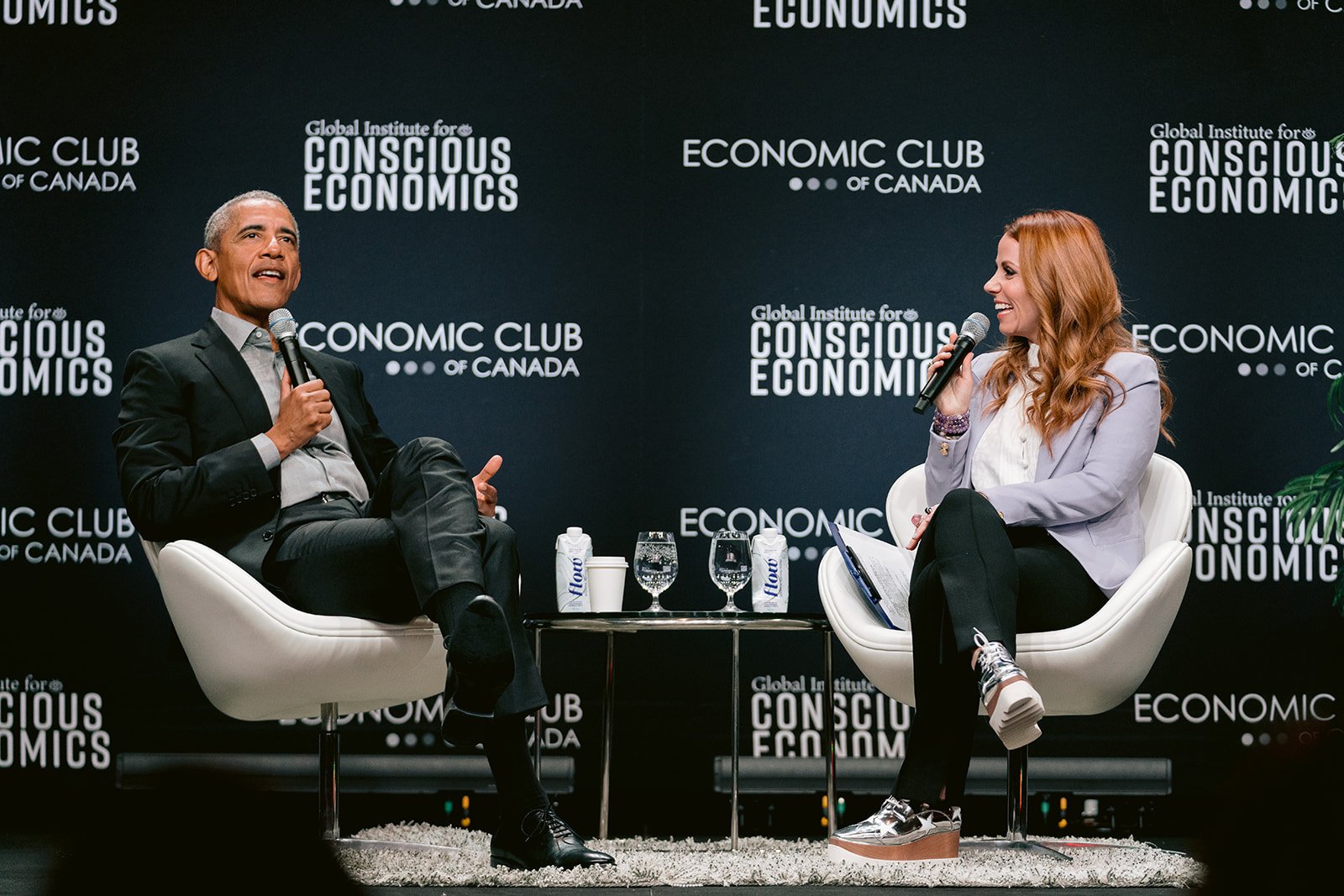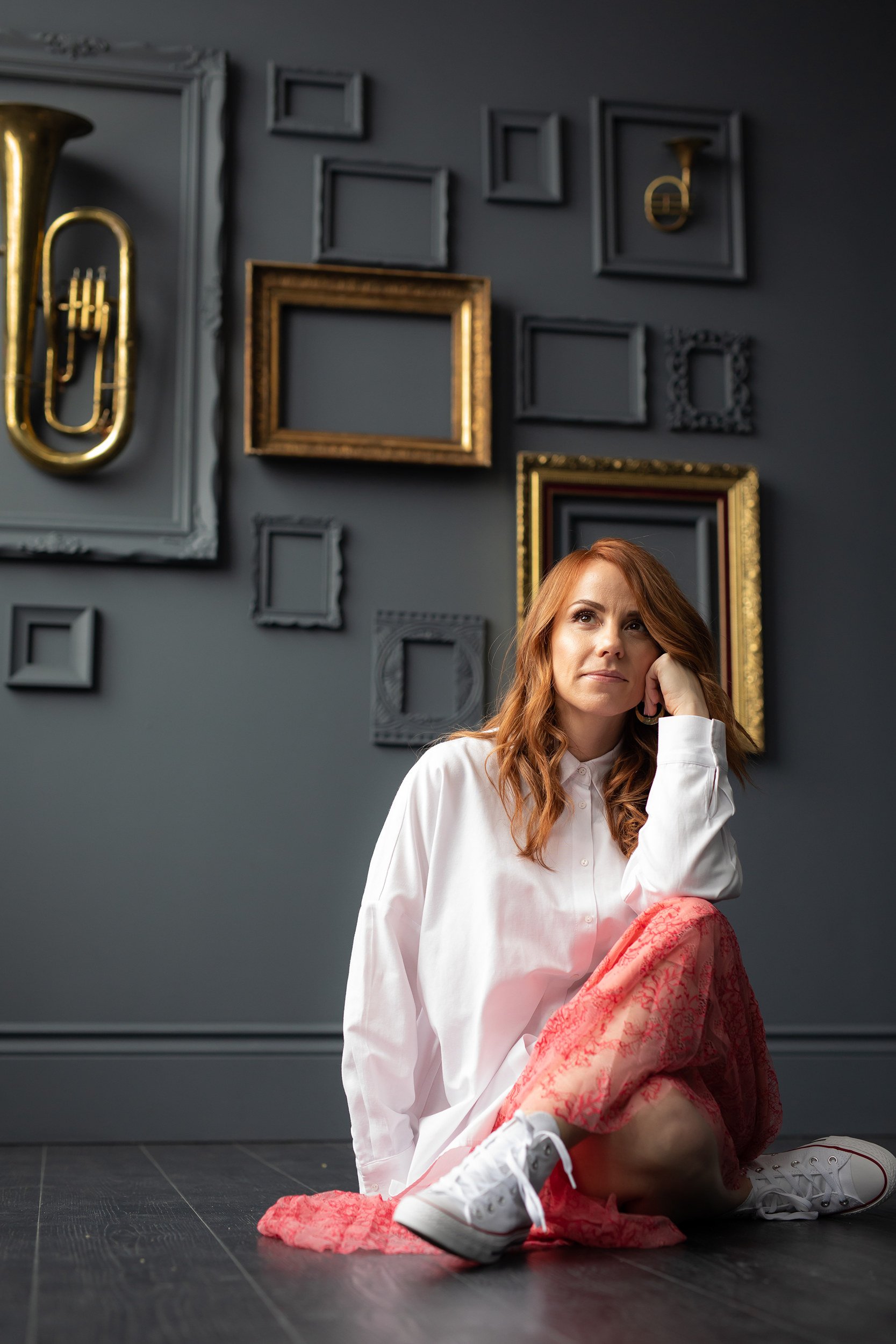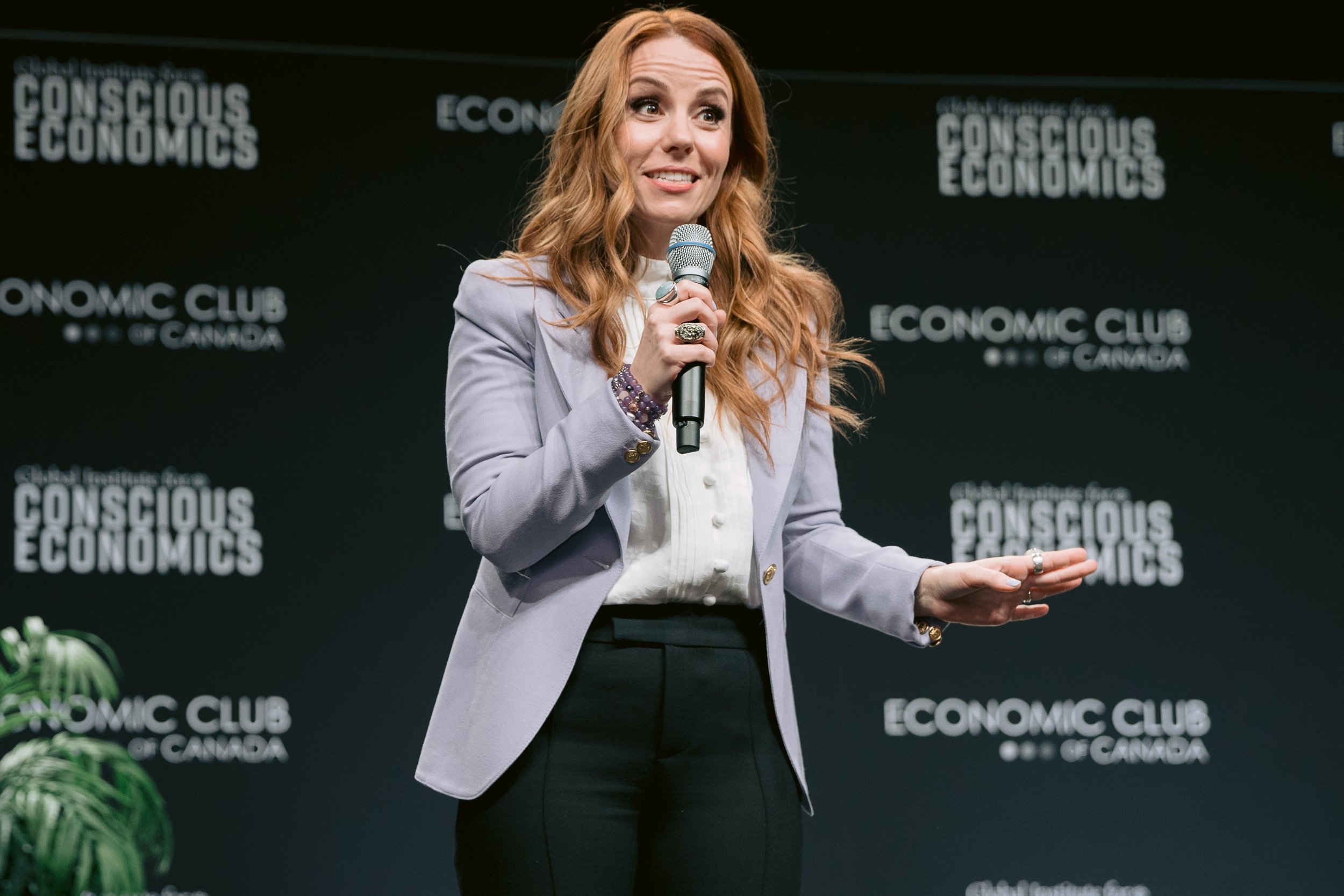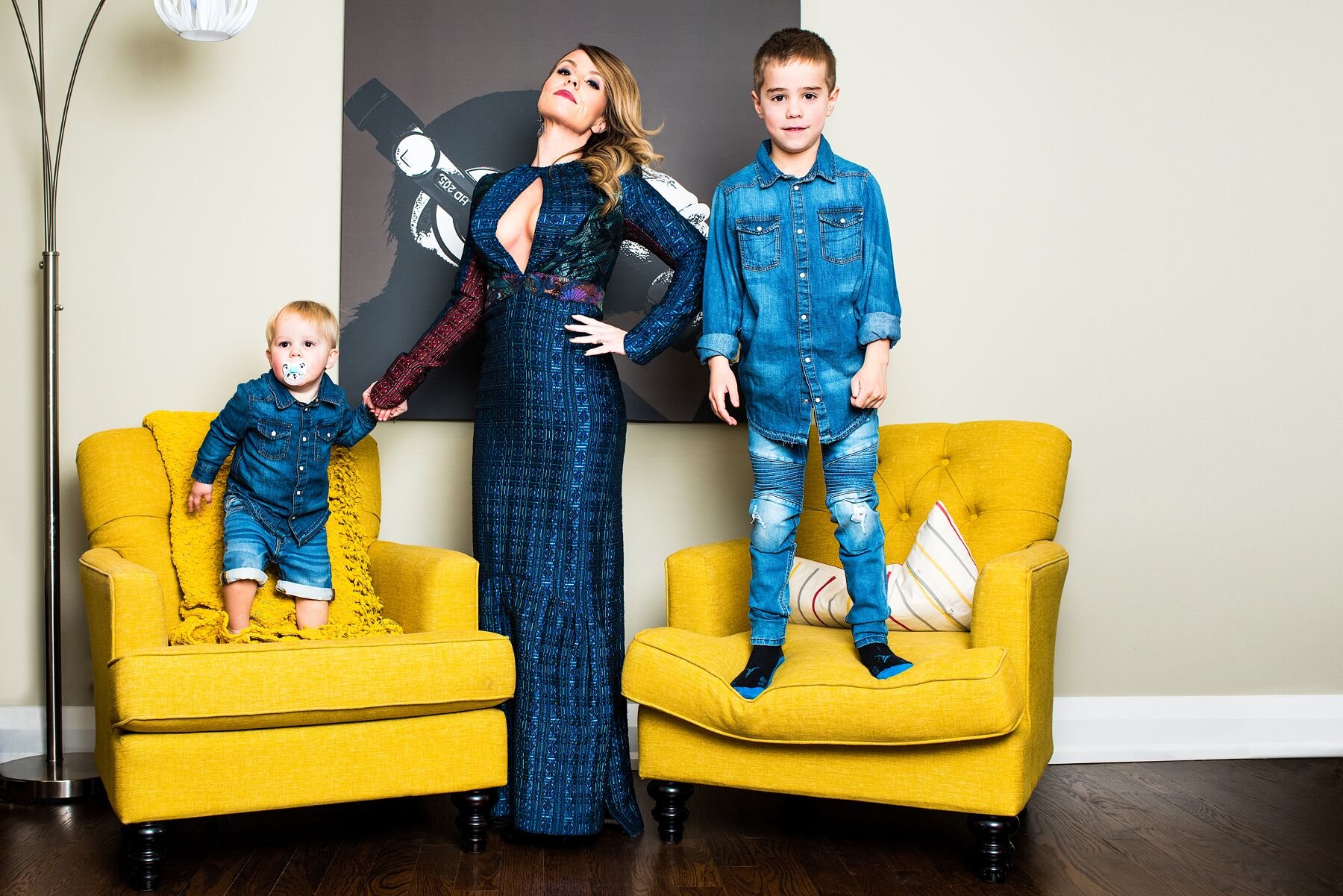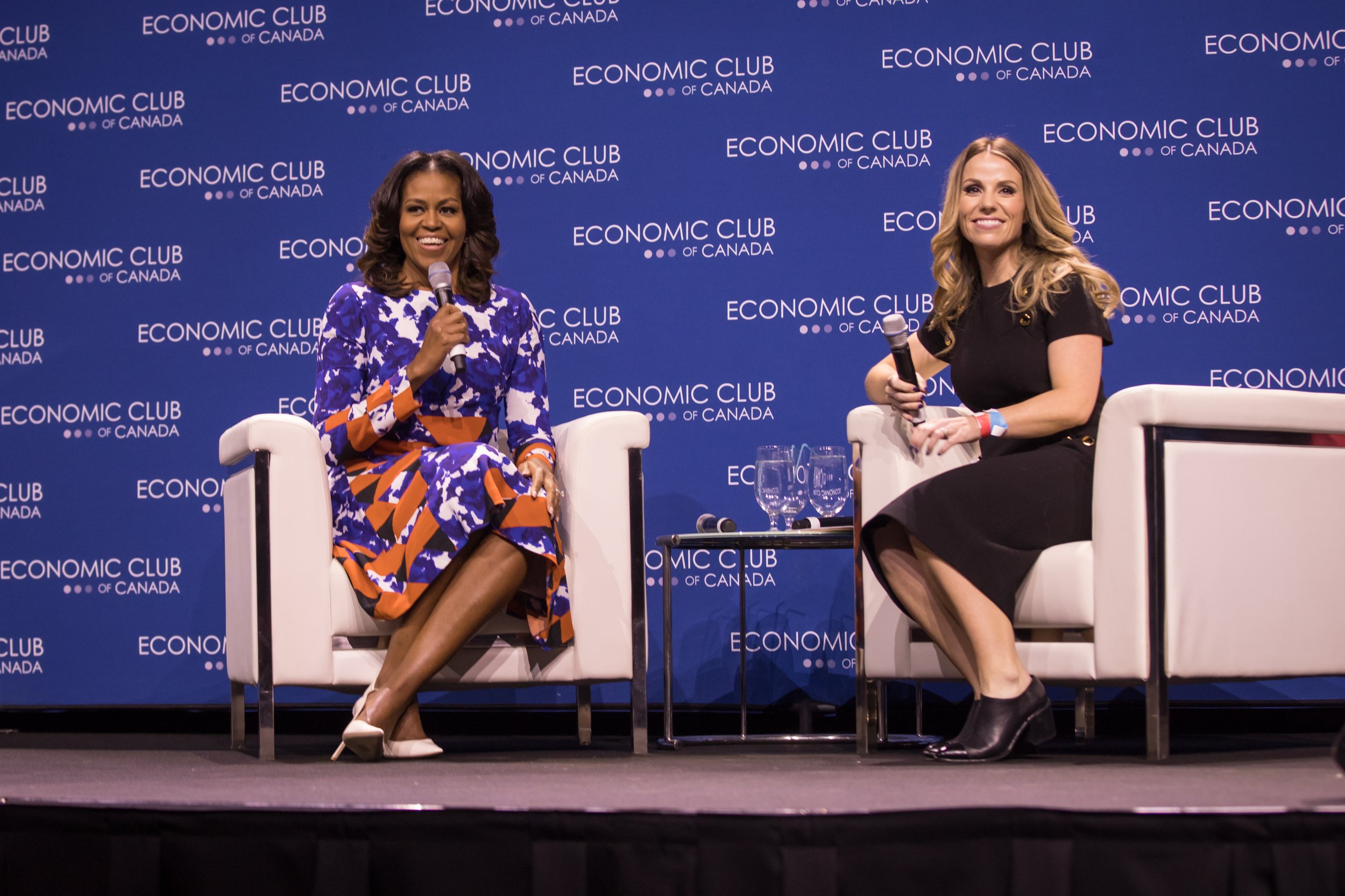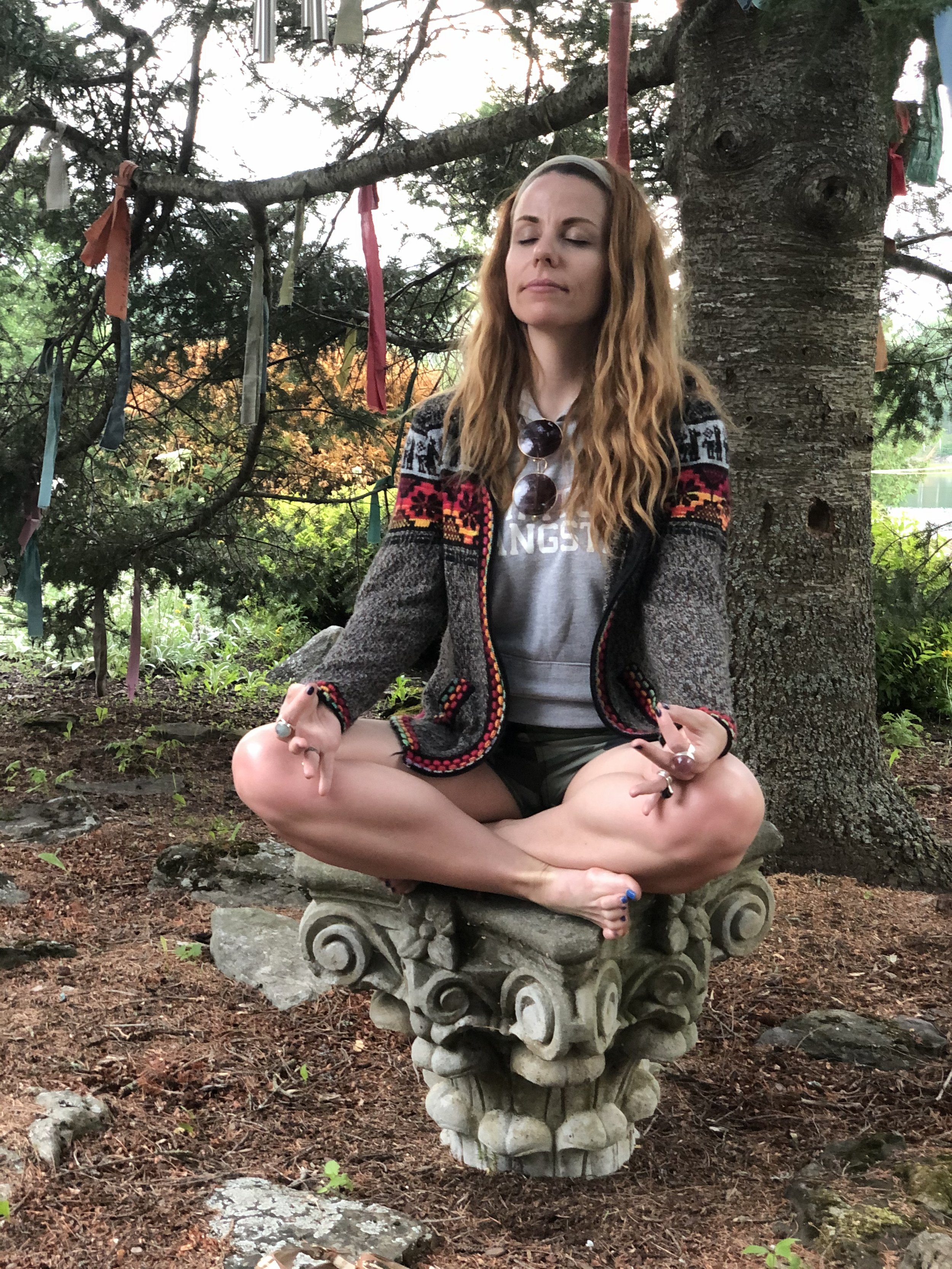From Chaos to Clarity: Rhiannon Rosalind’s Story
In collaboration with BDC, we’re spotlighting the mental health stories of #UnsinkableEntrepreneurs to provide hope, comfort, inspiration, and empowerment to #BridgeTheGaps between needing, finding, and receiving support.
Author: Rhiannon Rosalind
To learn more about this Unsinkable x BDC collaboration, check out our news release.
TW: This Unsinkable story discusses addiction, abuse, domestic violence, chronic PTSD, anxiety, panic disorder, depression, and financial trauma. We invite our community to read it only if it's the right time for them. If you're struggling, please reach out to the Crisis Text Line or Kids Help Phone.
.
.
.
For most people, I assume it would be hard to pinpoint the exact moment their life fell apart. For me, it’s not hard at all. I know the exact moment, the exact time, the exact place.
I was in Nunavut, caught in a storm in the middle of the Arctic Ocean. In many ways, the storm was a physical manifestation of my own internal storm—the one that raged inside of me since I was a little child and desperately tried to escape, ignore, resist, and numb. It’s only now, 6 years later, that I truly understand—you can never outrun yourself. Being an entrepreneur is tough; it can be isolating and lonely to ride the waves of uncertainty in business (for me it was also a great place to hide). I used my business to create a protective shell around me, conveniently keeping me too busy to get emotional, too successful to have an addiction, and too proud to ask for help. If you’re reading this and find yourself in a similar boat, I imagine you may feel a strong sense of relief or denial, depending on the stage you’re in on your own journey. If it’s denial, I can relate.
I’m telling my story today, in hopes that I can help another entrepreneur find their own version of truth and wellbeing. The more uncomfortable that sounds, the more likely you are to need to read it. I know this from experience.
I became an entrepreneur at 10 years old. My first business was born out of what I like to call creative necessity. I wanted to make my own money. I didn’t want to rely on the loving but very unstable adults in my home. With my young eyes, I observed that money was scarce and that made the adults in my home scared, sad, and even violent at times. I watched family members struggle with drugs and alcohol, working hard and yielding little to no results. I didn’t want to be like them, so I started a dog-walking business with my best friend. I learned early on that I was good at something unique…business. I didn’t call myself an entrepreneur back then—it wasn’t a popular path to take and it certainly wasn’t encouraged in young women. I had no real understanding of what business even was, but I knew that I could talk to anyone, sell things I believed in, develop meaningful relationships with my customers, deliver on my promises and best of all: make money doing something fun. These were incredibly powerful realizations to have at such a young age, and I wish I could say that by understanding them, it meant that my life was easy and perfect from then on…I wish, but that’s not my story.
By grade 10, I was a high school dropout experimenting with drugs and alcohol, living without the regular presence of my family, and dating someone almost double my age. My life had quickly become a mess. The young girl who was so creative and talented at business seemed distant in my memory. Looking back, I see why I wobbled down the path of pain and rebellion. I was overlooked at school—struggling to keep up and dismissed by my teachers. Home life was hard, unpredictable, and often totally chaotic. My creativity, my intuition, my emotional intelligence, and my innate business skill were not recognized within the education system. So, as the bad grades kept rolling in over those few years, I started to look for acknowledgment elsewhere.
It was at this time that I realized another special skill I had acquired…fitting in. I choose to fit in with the crowd that felt broken—just like me. We weren’t bad kids; we were hurt and traumatized, and we wanted to express that pain, explore it. I excused my bad behaviour as a cry for help. The problem was, no one really seemed to hear it. So, at 15, I saved myself.
I remember the moment like it was yesterday. The morning was hazy after another night of partying. I went to the washroom and caught my own eyes in the mirror. I couldn’t look away. I stared deep into myself and saw something I knew all too well. My eyes were dead and my spark was gone. I had become disconnected from my soul, the same way many of the people in my family had become. I’d been wearing my victim badge so proudly that I’d forgotten the truth. I was responsible for my own life. It was that day that I made a commitment to myself: to be a better version of me. To try. To attempt. The only path I could see was cutting off my broken friends, trying to finish school, and removing hard drugs from my life. So, this is the path I pursued. I replaced my friends with different ones, got into a different high school in a brand-new area, and traded MDMA and hard drugs for something more harmless and socially acceptable—alcohol. In my mind, I had solved all my problems.
At 26 years old, I became the President and CEO of The Economic Club of Canada in a blind pass-off after the founder was elected to federal office with an unexpected win. I thought I understood what I was agreeing to when I took the interim position. Looking back now, I was incredibly naive, but I honestly thought I could figure it out because of my special business skills, my drive to succeed at all costs, and my ability to fit in. It was these skills that had gotten me here—from a high school dropout at 15, to negotiating my way back into school, to becoming the first in my family to graduate and go to university. It was also these skills that helped me get an entry-level job at the Economic Club just a few weeks out of university (and work my way up so quickly that even my head was spinning). All the while, drinking heavily—mostly on weekends.
I didn’t think much of it at the time. Partly, because everyone around me seemed to be doing the same thing and partly because my role at work made me believe that my drinking was different than the kind of drinking my family did growing up. They were sick and I was…successful?
By 28 years old, I became the sole shareholder of The Economic Club of Canada. I worked to buy out the founder and diligently dedicated my entire life force to growing the organization—we became known as the most preeminent public policy and business platform in the country. I also started a prominent not-for-profit during these years: The Jr. Economic Club of Canada. It was my hope that I could use my resources to help kids who grew up like me, teaching them about business, money, and public policy.
From the outside, I had it all. Awards, accolades, a husband, two beautiful children, a home that I owned, great friends, and a great staff. I had, by society’s definition, made it. I was a cycle breaker in my family…or so I thought.
The Truth was not something I wanted to see at the time, so I kept ignoring the warning signs from my body as my stress and drinking increased. I pushed through exhaustion, hid the pattern of financial chaos that I was continually trapped in, refused to ask for help, and tried to fit in at all costs. This was how I survived. I drank away my anxiety on the weekends, which often resulted in total blackouts and an inability to remember anything at all. I became addicted to serving others and trying to do good, so much so that I ignored my own basic needs most days, like eating properly or taking breaks to rest. I told myself that this was what success felt like—this was being a grown-up, this was being responsible. I desperately tried to hold it all together and accept external validation as my only source of worth. At the time, I thought this way of living was my only option—this was the price of entrepreneurship, and alcohol was a supportive friend helping me take the edge off after hard stressful days.
In July of 2017, out in that massive storm in the middle of the Arctic Ocean, I woke up to the fact that something needed to change. I couldn’t hold on any longer. The chaos of the environment unearthed the chaos inside of me. I thought I would die in that moment and accepted that I might.
The truth is, a part of me did die that day—the part of me that didn’t want to seek help, the part of me that didn’t accept myself, and the part of me who didn’t want to see the truth of what I had become…a highly functioning alcoholic.
My name is Rhiannon Rosalind, and I am a trauma survivor and an amazing entrepreneur. I have overcome addiction, abuse, domestic violence, and chronic PTSD. I have struggled with anxiety, panic disorder, depression, and financial trauma. Today, I stand free. Not free of my past, but free from the running from it. I am learning to accept myself in all my unique glory. My path towards healing has involved sobriety, therapy, mindfulness and mediation, self-inquiry, silent retreats, energy work, songwriting, art, shadow work, inner child work, EMDR therapy, a divorce, selling the Economic Club, slowing down, being in nature, apologizing, taking ownership, financial therapy, taking courses to support children of alcoholics, saying no, asking for help, and admitting the truth. When I first realized I needed help, I sought out a therapist and removed alcohol from my life. To do this and stick to it, I had to change many things about my life, including the people that surrounded me—even ending my marriage. I took it one day at a time. It was never easy, but today, I can honestly say it was worth it.
These changes haven’t resolved all my challenges, but they certainly have made them more manageable. I truly love my life. Most days, I feel happy being me.
My newest business venture, Conscious Economics, is my true passion. It combines my love for healing and my love for business. We help entrepreneurs, artists, and business leaders do the real internal work: find true success using modalities of mindfulness, nature, financial therapy, and music. These days, I enjoy working with a small team of people I love and respect. We operate using a four-day workweek. I’m more successful now than I ever was before, but I’ve redefined what that means.
For me now, success means feeling my whole range of emotions, taking care of my body, mind, and spirit, enjoying being a mom, taking things less seriously, and waiting at least 24 hours before making any major life-altering decisions. And, best of all, running a business that I love because I’m a damn good entrepreneur. Xoxo.
Despite your drive and resilience, building, running, and owning a business can take a toll.
If you’re looking for more information or help with your mental health, BDC, Canada’s bank for entrepreneurs has curated a collection of resources to help guide business owners. We hope that through them, you will be informed, educated, inspired and guided.
About Rhiannon: Rhiannon Rosalind (@rhiannonrosalind) is the Creator and Chief Visionary Officer of Conscious Economics, and best known for over a decade as the CEO and sole shareholder of The Economic Club of Canada, the highest-profile and most recognized business platform in Canada. Uniquely positioned as a convenor and bridge builder between business execs and artists, community leaders, and young people, Rhiannon has hosted some of the most relevant speakers of our time, including: President Barack Obama, Michelle Obama, Amal Clooney, former U.S. President Bill Clinton, and former President of France, Francois Holland. Rhiannon’s love for music, art, social innovation, and business has led her to create countless experiential learning programs, events, and content that have served over 50,000 young people across Canada in the spirit of social change, reconciliation and economic healing. As a serial entrepreneur and social innovator, Rhiannon successfully incorporates music and art into the business and public policy landscape, uplifting many artists and musicians from across Canada on an annual basis.
About Conscious Economics: We are a national not-for-profit organization and global social enterprise headquartered in Canada, with a 10-year history and proven track record in economic education, financial literacy programs, research, events and experiential learning. We have staged over 1000 events that have gathered youth, business leaders, policymakers, change agents, educators, industry associations, charities, and not-for-profits. While we engage with all communities, we maintain a specialized focus on equity-deserving populations including BIPOC, LGBTQ2S+, Women, and Artists.



